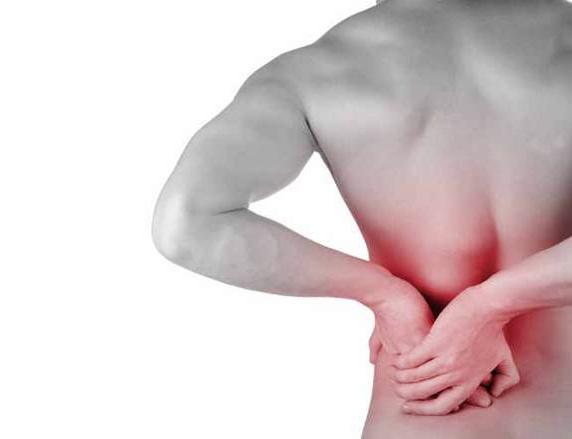A recent ABC series on Searching for Superhuman highlights that each of us are a result of our own unique microbiome - the make up of microbiology that forms in our individual systems, organs and in particular our intestinal tracts. This microbiome plays a fundamental role in our health and the types of diseases that we are prone to. When we look at diseases we often look at lifestyle and diet choices as these are the presenting factors that ultimately determine the make up and balance of each individuals microbiome.
SO what is our microbiome? The microbiome is coined as the genome of all mircro-organisms living in or on all vertebrates. Simply, a microbiome is a collection of microorganisms living in a particular environment. Microbiomes exist in various sections of our body but the big exploration is in the microbiome housed in our gut, mouth and skin. This microbiology in every individual has been the subject of global exploration as we begin to understand the link between the power our microbiomes have on our health and well being. Bacteria, fungi and viruses are all present in our microbiome and not all of these are bad (think E.Coli, Salmonella or Chlamydia). We need bacteria and fungi in our guts to keep the balance of our microbiome healthy. And it’s not just our intestinal tract that needs this - our skin needs it to constantly battle the elements that it is exposed to and there is also research investigating the link between how our microbiomes affect the way our brain functions.
When we look at microbiology and microbiomes we can also look beyond just the human experience and expand our understanding of the relationship these microorganisms play on an environmental scale. The balance of microbiology is equally affecting our ecosystems and environment on a planet level. For example the removal of Carbon Dioxide from the atmosphere, the interplay between oceans and carbon sequestration and also our climate change pollution and carbon emission concerns. Microbiomes vary from the depths of the ocean to the heights of our mountain ranges - each ecosystem has it’s own unique microbiome. These are all part of the global microbiome and this directly effects our interaction as inhabitants of the planet and it’s environment.
So it stands to reason that when we think of microbiomes we instantly can begin to think of nutrition and the ingestion of food as influencing our gut microbiomes. What we eat influences how our unique microbiomes react. And further to this - every individual is made up of their own unique microbiome which influences how we interact with our food. Think lactose intolerance, coeliac disease, nut allergies - all these factors are unique interactions of systems that are sensitive to the microbiology contained in these foodstuffs. The assumption that every person has the same make up of bacteria and microbiology has now been refuted with investigations such as the American Gut Project led by Dr Rob Knight at the University of California (begun in 2012) to map the diversity of human gut microbiology. The findings mean that you can with great accuracy, locate someones geographical location according to their gut microbiomes along with predisposition to certain diseases and then also to certain diet interventions or synthetic medicines. This explains why my microbiome allows me to eat nuts whereas it may not allow someone else to. Understanding that this is influenced by our own genome and genetic code is a game changer when it comes to treating or manipulating individual systems for overall health.
When we look at the dietary influences one of the greatest risks of our diet comes down to not enough variety of foods. Oddly - in the western world, the high availability of low cost food means that often we don’t often make a variety of food sources a part of our dietary intake. The greatest risk here is a risk of dietary fibre being a constant in our lifestyles. As we begin to understand that a reduced intake of meat and dairy in our diets may be a healthier option for our microbiomes, we are also beginning to understand that a more diverse fibrous intake including both soluble (pectins, gums, mucillage) and insoluble (cellulose, hemicellulose and lignin) fibres are vital for ensuring healthy movement of food and nutrient uptake in our gut and intestinal tract. Changes here have a wide reaching impact on how our system processes foodstuffs and also in the cellular processing of our microbiology that ultimately leads to impact on cancer formations and short chain fatty acids in our microbiome.
Dietary fibre stablises our system - it helps to stabilise glucose (be delaying abosorption of sugars in the intestinal tract) and cholesterol levels (binding fatty acids in bile to prevent laying down of fatty streaks in the arteries) as well as aid in digestion benefits and allow us to absorb more nutrients from our food (slows down the passage of food through our system). Nations with high fibre diets have less coronary disease, bowel cancer and diabetes.
The Garvan Institute in Sydney made some startling revelations about why dietary fibre is important in the management of inflammatory disease. Charles Mackay, Professor of Nutrition. Immunology and Microbiology is a leading expert in battling inflammatory disease and has been an advocate of gut microbes and metabolytes influencing western lifestyle diseases. His platform is that receptors on immune cells are actually stimulated by short chain fatty acids which are a metabolite that is produced by fibre. The research showed that this SCFA’s had a direct link to the suppression of many common inflammatory diseases that are skyrocketing in the western world. The results were a notable decrease in food allergies, asthma, colitis and type 1 diabetes. This line of investigation is also being pursued globally currently in human trials. Without fibre, microbes can’t produce SCFA’s and without these vital microbes, our immune cells can’t do their job properly. This type of investigation is also going beyond just gut diseases and looking at neurological diseases such as Parkinson’s, Multiple Sclerosis, Autism and even depressive disorders. The interaction between the microbiome and our brain is being investigated further as scientists begin to explore how the microbiome affects our mood, our food cravings and our production and uptake of neurotransmitters.
So the ability to shift and manipulate the microbiome is the new direction of making medical intervention a better fit for individuals and making more targeted applications of medicine. Having a robust and healthy microbiome may be the new direction that we come to think of when we think of individual and personal health. And in the quest for this diversity and healthy microbial community there are some concerns about things we have done in the past that we need to better in the future.
In the past one of the great medical advancements and wins of western contemporary medicine was our ability to stave off infectious diseases with antibiotics. Our broad application of antibiotics to kill pathogenic infections has resulted in great advances in saving thousands of lives, advancing medical approaches to treating disease and managing other complex infections and increasing life expectancy. But the overuse and misuse of antibiotics now leaves us in a place where the drugs don’t affect the superbacteris - those infections that have become immune to our antibiotic strains. Antibiotics also kill off whole species and this has an effect on our microbial community. As Dr Knight says - “its like sprinkling fertiliser on your garden when the right seeds aren’t there.” Trying to repopulate a microbiome after being depleted is still a question scientists are trying to determine however they do say that over the long term, from 6 months to more does have an impressive effect on repopulating the beneficial microbiomes in our guts. Spending time outdoors in touch with healthy soil, plants, animals and other microbial communities is a best way to stimulate a good and consistent development of a microbiome that his healthy and robust.
Now there are more desperate ways that we are looking at repopulating microbiomes into effect and getting a better system as a result. Faecal transplants (transmitting the faeces from one system to another) have been found to be a highly effective cure for diseases that have been associated with antibiotic triggered diarrhoea and also inflammatory disease. It’s actually saved lives. Now I have to admit that when I first heard about Faecal transplants I thought it was a lot of hogwash of something that maybe Gwyneth Paltrow was responsible for. But it turns out that it’s been quite an effective way of shocking our microbial communities into action. Not necessarily be replacing our microbes with the microbes from a healthier version, but by stimulating our own microbial balance by giving it an overwhelmingly large content of another community.
The investigation into the microbiome and the ‘microbial community’ within each of us is changing the way that scientists and medical practitioners are starting to look at the way we treat diseases and people and how we are matching people and their predisposition to disease. Our genetic codes may pre-determine our predisposition to what we endure and suffer, but the way we address this is becoming more individual and targeted in our medical approach. It’s super exciting and advancing at an incredible rate. This new direction is going to change the way we approach disease. But the take outs of what we have discovered is to get out and get microbial. Get in touch with nature and treat your diet as a mutli-layered and complex source with up to 30 plant based foods per week to help keep our microbiome healthy and robust. It will stand you in good stead when you are faced with disease and challenges to our health.



